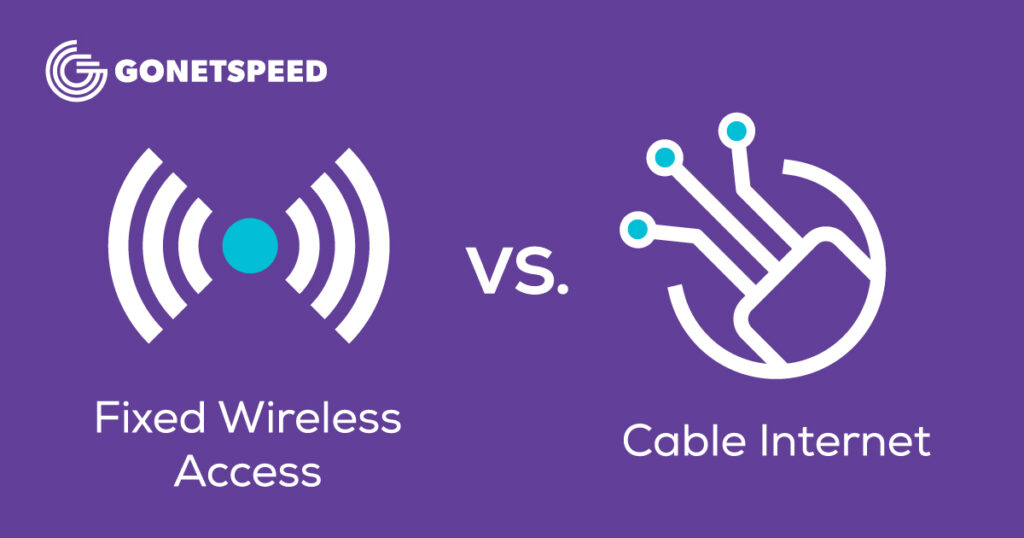
Greetings, lovers of swift Internet access! As the world evolves, so do our choices for staying connected. Remember when cable was the cutting-edge way to experience the Internet? Those were the days! But as technology advances, new players are entering the field. If you’re pondering an upgrade to your Internet setup, let’s navigate this journey together as we compare Fixed Wireless Access (FWA) to traditional cable.
First off, what exactly is FWA? Think of it as an upgraded, more sophisticated cousin to your standard cable connection. Instead of physically tethered copper wires, FWA uses wireless technologies to deliver data from the main access point to your home or business. Sounds a bit like science fiction, right? But rest assured, this is very much science fact, and it’s transforming the way we connect online. Let’s dive into the top 5 reasons why FWA leaves cable in the dust.
- Speed
In our digital age, having a rapid and reliable Internet connection is not a luxury but a necessity. Enter FWA. FWA operates with impressive speed that significantly outpaces traditional cable, resulting in a fast, seamless online experience. This speed advantage becomes particularly noticeable when streaming high-definition content, video conferencing, or engaging in real-time gaming. Remember the frustration of watching that buffer symbol slowly rotating or dealing with glitchy video calls? With FWA, these could be a thing of the past. The speed of FWA can make your digital interactions smoother and more enjoyable, improving everything from your work productivity to your downtime Netflix binge. - Flexibility
The Internet has become an integral part of our lives and setting it up should be as hassle-free as possible. FWA really shows its strength in its flexibility. Unlike cable, it doesn’t require disruptive groundwork or cables to be strewn across your property. The installation process is straightforward, usually involving the setup of a simple receiver. In many cases, this means you can have fully operational service within a single day. - Scalability
Scalability in an Internet connection may not be something you’ve considered, but it’s critical to maintaining a steady and robust connection. With cable, as the number of users increases the available bandwidth often decreases, leading to slower speeds during peak times. However, FWA operates differently. It allocates a dedicated bandwidth to each user, ensuring your connection’s performance remains unaffected, even if everyone in your neighborhood decides to stream the latest popular series simultaneously. This scalability is particularly beneficial for families with multiple members using the Internet at the same time. - Coverage
Internet access has become essential, and it’s crucial that everyone, everywhere, has reliable connectivity. Traditional cable can be restrictive, struggling to reach certain remote or difficult-to-access areas. Here’s where FWA steps up to the plate. It excels in delivering connectivity to locations that cable has traditionally found challenging to serve. Those frustration “dead zones” in your home or community? FWA can potentially breathe life into these Internet-starved areas, providing the same robust connectivity you expect in city centers. - Reliability
In the realm of connectivity, consistency is king. And when your Internet connection is as unpredictable as a weather forecast, it’s not just annoying – it can hinder your digital activities. Not dependent on a physical network of cables, FWA is generally less susceptible to local cable failures or network congestion. Whether you’re closing a critical business deal, submitting an online exam, or chatting with a loved one, FWA offers the peace of mind that your connection will stay steady and secure.
This isn’t just a typical face-off between FWA and cable. This is about recognizing a shift in the technological landscape and making a decision that prepares you for the demands of the modern digital world. It’s about choosing a service that’s not just fast, but one that can keep up with your pace. It’s about valuing flexibility and ensuring reliability – because nothing puts a damper on your day like a sudden Internet outage just when you need it the most. And most importantly, it’s about future-proofing, because technology waits for no one.
But our conversation doesn’t end here. Got questions? Have some thoughts to share? Or are you just looking for more details? Don’t be a stranger — we welcome your curiosity.
Contact us today and let’s make the Internet work better for you!